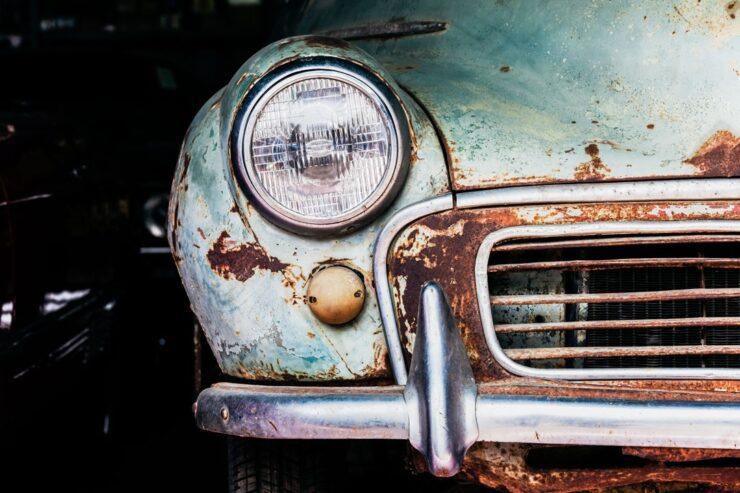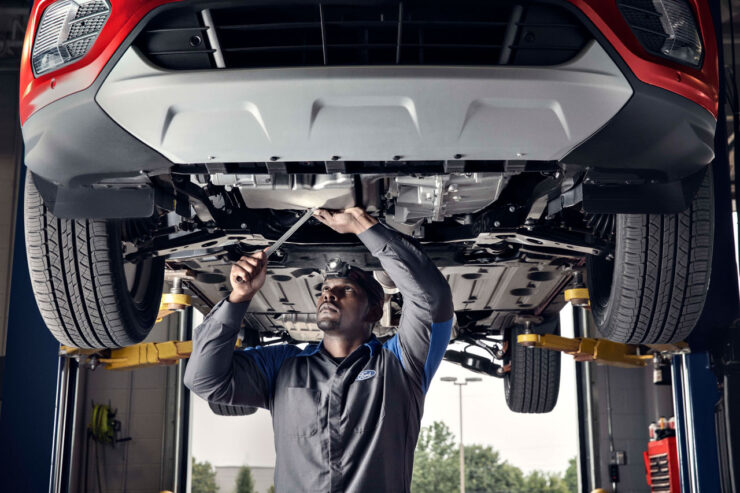A few years back, I was just as confused as you; I had an old 1990 BMW M5 that I thought was counting its last days, had begun overheating, and was continually thirsty. Even the paint had faded and started chipping, so clearly, it had seen better days. Naturally, I was in a dilemma — what now? Should I buy a new car or repair this one instead?
Consequently, I started talking to people, and one of my friends suggested getting a car repair manual, conducting a few repairs on this website, and seeing if my M5 would make it. I was reluctant, at first, considering I had already spent a lot on that car, but little did I know what was in store. The manual proved to be highly valuable, and luckily I was able to resurrect my old pal — and to date, it still runs fine.
That repair manual was my stepping stone in the world of car maintenance and repairs, and I liked it a lot. Repairing a car that I thought needed replacing gave me newfound confidence and skills that I still use today.
But is that always the case? Is fixing your aged pony worth it every time? What should you consider before buying a new one? When do you know that it’s time to actually let go of your old car and move on?
Let’s discuss.

Estimate How Much You’ll Spend on Repairs
Of course, money is and will always be the main deciding factor. It makes no sense to keep spending big bucks on an old clunker that already lost more than half its value. In fact, as a general rule, your repair expenses should not exceed one-third of the current value of your vehicle.
For instance, a rusty frame or an old engine is expensive to fix or replace. To give you a better idea, a blown motor or failed transmission can cost between $1,000 and $5,000 to replace and that’s without the labor cost — not to mention that there is no guarantee something else wouldn’t break right after.
But I get it; some people (like me) are too attached to their cars. In that case, a cheaper alternative would be just to get a vehicle service manual, buy the parts and replace them yourself. This way, you would be cutting the labor expenses forming a sizeable chunk of your repair cost.
However, if you find that your car runs fine with basic maintenance such as an oil change and brake pad replacements, costing no more than $50-$200, then it’s too early to get a new ride. You could comfortably get a couple more years out of your old vehicle, provided you maintain it regularly.

Good vs. Bad Maintenance
One of the most common mistakes people make is that they take the scheduled maintenance of their vehicle for granted. Unfortunately, skipping recommended services is not only detrimental to your car’s health but also causes repair costs to skyrocket over time.
Indeed, regular maintenance is vital to the well-being of your vehicle, preventing your ride from leaving you stranded in the middle of nowhere after some years. Apart from that, a well-serviced vehicle is a much safer vehicle — you really don’t want to drive with worn-out brake pads, trust me.
Furthermore, cars with a poor service history have lower demand in the second-hand car market. Potential buyers might back off if they see a lousy maintenance record — nobody wants the extra trouble.
So, all in all, always make sure that your old car gets the care it deserves by following the manufacturer’s recommended service schedule. Moreover, most maintenance work, such as oil, spark plug, and coolant replacement, is fairly easy to do at home by following a car repair manual. Besides, it’s much cheaper than bringing your vehicle to the repair shop or having to call for a tow truck.

Fixing an Old Car vs. Buying a New Car
First, let’s cover the fixing part — the most important thing for me is that this path allows you to keep your beloved car. Still, it also delays the sudden financial pressure of getting a brand-new one. On the flip side, there is always the risk of breakdowns.
Older cars can be highly unpredictable and repairing a specific component doesn’t guarantee something else won’t break too. Moreover, older cars require more frequent trips to the auto part store than new ones, which adds to the hassle.
No need to say that buying a new car relieves you of this constant stress. Every day, you will wake up without having to worry about whether you’ll make it to work in time or not. At last, you’ll have the mental peace your old ride denied you for years — that’s not to neglect.
But buying a new car also has its downsides. For instance, there might not be online auto repair manuals already published. Moreover, you might have to rely on dealerships for maintenance until the warranty period is over, which will cost way more than doing your own repairs in the comfort of your garage.

Last Words
In the end, you know your car better than anyone else. And let’s admit it; if it holds a special place in your heart, repairing it will always make more sense. Just keep in mind that it’s not a financial decision anymore.
Moreover, keeping your old car longer will also give you more time to prepare financially for a new car. And by then, you can also use the money from selling your old vehicle as a downpayment for your fresh ride. On the other hand, getting a new car is a big decision and an investment that can significantly influence your life.
Put simply, there is no right or wrong answer here and the path you’ll choose to take is really a question of personal preference — and budget.

